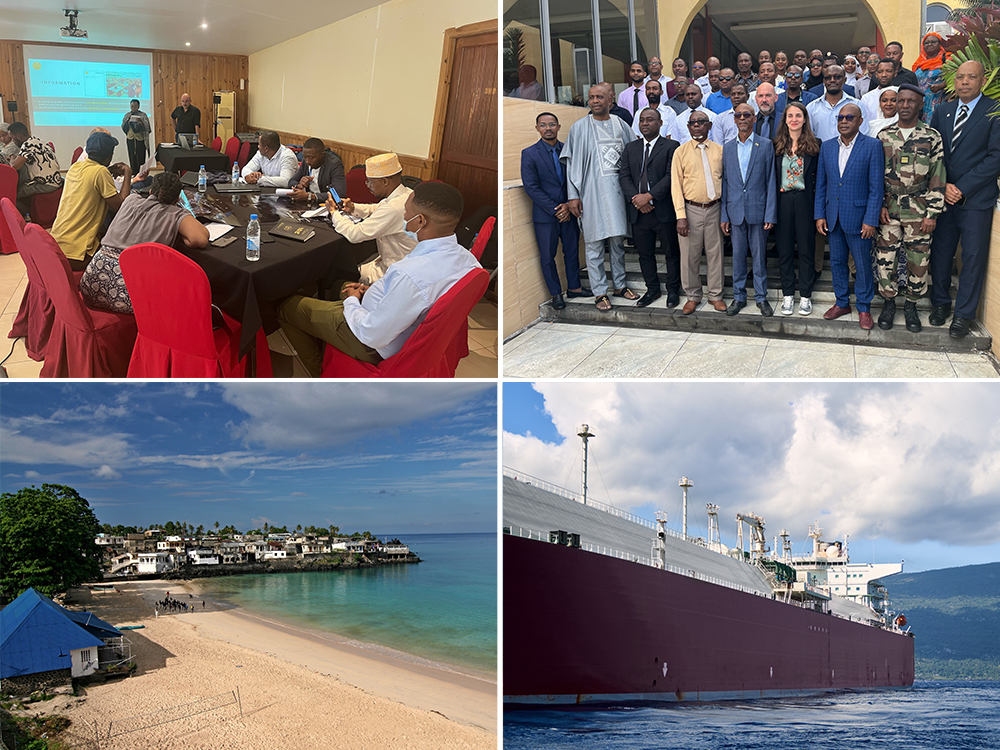Comoros has outlined an action plan to further support its national oil spill preparedness and response framework, following in-depth IMO training.
The action plan includes updating the country’s national oil spill contingency plan (NOSCP), with a strong focus on training and capacity-building, notably on effective communication.
The plan was the result of an intensive workshop delivered by IMO in Moroni, Comoros from 10-13 June, building on previous technical assistance provided to the country.
Forty national participants involved in oil pollution response participated in the National Oil Pollution Preparedness Response Cooperation (OPRC) Level III training, followed by a workshop on contingency planning.
Participants learned about their roles and responsibilities before and during an oil spill, as well as strategies for undertaking an effective, efficient and safe clean-up operation.
The sessions provided a deep understanding of incident management, including personnel safety, stakeholder collaboration, response limitations, communications, media relations, and overall response management.
Emphasis was placed on effective collaboration among numerous stakeholders. Participants had the opportunity to build networks and foster a cooperative approach to oil spill preparedness and response.
The training further supported regional cooperation and collaboration amongst Contracting Parties to the Nairobi Convention for the Protection, Management and Development of Coastal and Marine Environment of the Western Indian Ocean (WIO) region, with presentations made by the Regional Maritime Information Fusion Centre (RMIFC) in Madagascar and the Regional Coordination Operations Centre (RCOC) in the Seychelles.
The training programme was delivered through IMO’s Technical Cooperation Programme (ITCP).
